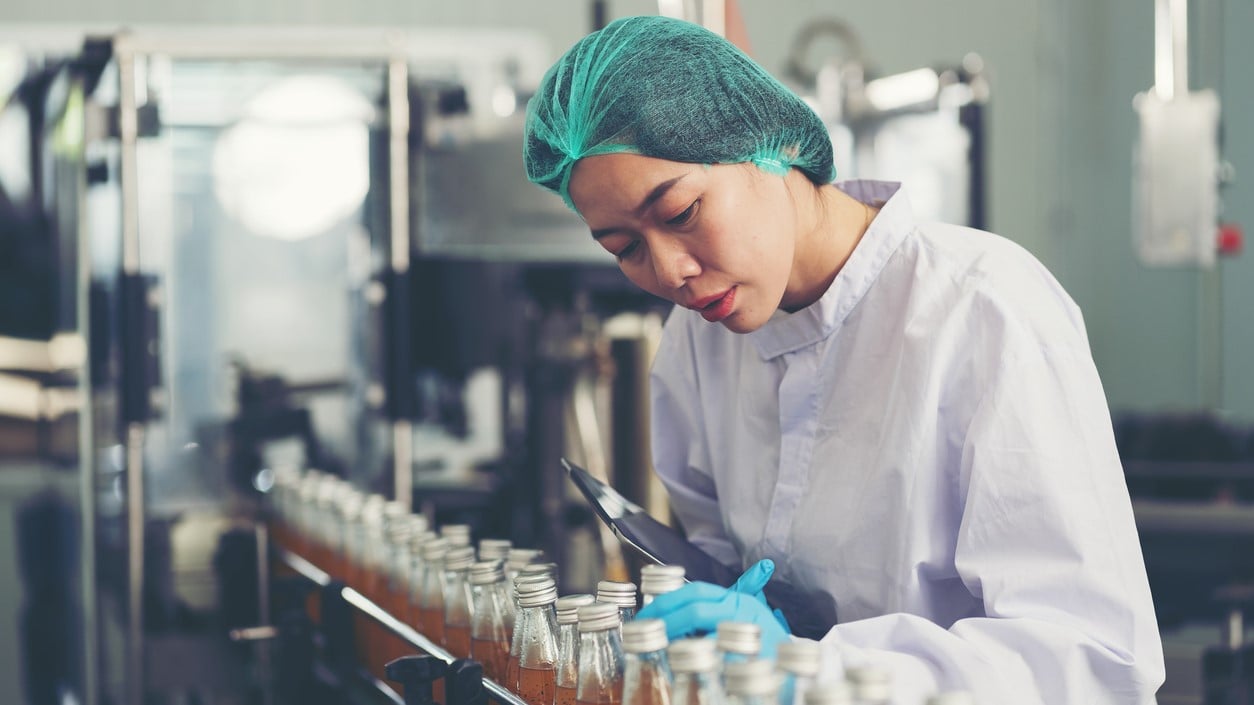Building the Ideal Food Safety Curriculum for Frontline Workers
In many ways, the frontline workers in food and beverage manufacturing have the most important role at their company — handling and impacting every product that ships out of the facility. Equipping this workforce with the knowledge, skills, and sense of responsibility to maintain food safety requires in-depth training that covers:
- Sanitation and hygiene practices
- Food safety regulations
- Deep immersion in food safety culture
- An understanding of the purposeful role they play in protecting public health
For over 100 years, AIB International has helped stakeholders throughout the food and beverage sector overcome food safety challenges, provide education, and train workers at every level of an organization on principles and best practices. These three food safety trainings will build a strong foundation for frontline workers as they begin their journey into the industry.
1. Food Safety Essentials
This course on Food Safety Essentials provides fundamental knowledge about safe food handling practices, personal hygiene, and proper sanitation techniques.
Why It’s Important
This knowledge is critical for frontline workers to understand their role in preventing foodborne illnesses, ensuring compliance with regulations, and maintaining a safe food processing environment.
The course also provides a high-level understanding of how adhering to food safety principles protects the reputation and integrity of the company, and maintains trust with consumers.
What Students Learn
- The importance of personal hygiene on-site, including clean uniforms
- Thorough hand-washing techniques
- How to follow the procedures they've been trained on to ensure food safety
- How sanitation, pest management, and key food safety protocols support safe food products
2. Understanding the Good Manufacturing Practices
The training on Understanding Good Manufacturing Practices (GMP) provides crucial insights into how GMP rules and standards inform food production.
Why It’s Important
Frontline workers must understand and follow GMP regulations or rules in every aspect of their jobs, understanding how they align with the larger GMP principles the manufacturer is following at an organizational level and their significance in safeguarding the food supply. This quick, four-part series not only explains the reasons for these rules, but also highlights their direct impact on product quality, safety, and compliance.
What Students Learn
- How GMP rules are applied throughout a food and beverage manufacturing and processing environment
- How GMP lays the foundation for and nurtures a strong food safety culture
- The basics of the identify, control, eliminate (ICE) analysis method and how to use it to identify root causes in food safety issues
- The role of current GMP in AIB International’s Consolidated Standards for Inspection
3. Food Protection for Warehouse and Distribution Centers — 5-Part Series
The five-part training on Food Protection for Warehouse and Distribution Centers is designed for employees at distribution and warehouse facilities, providing them with the essential knowledge needed to implement a variety of comprehensive food safety and food defense programs.
Why It’s Important
Food Safety Programs are an increasingly crucial part of food and beverage manufacturing operations to protect products while in storage and distribution. The series of easy-to-understand webinars covers how to safeguard both storage facilities and shipping or receiving centers, and what it takes to exceed regulatory expectations.
What Students Learn
- The principles of food defense strategy
- How to identify risks associated with incoming materials
- The design and implementation of sanitation, and cleaning schedules as they relate to food defense
- An overview of how to implement Integrated Pest Management (IPM) strategies
Food Safety Training for the Next Generation of Frontline Workers
Frontline workers across the food and beverage industry ultimately make or break the effectiveness of any food safety program. In many cases, they can be one of the last lines of defense to prevent unsafe food from reaching the market and impacting public health. It’s essential for them to understand best practices for food safety, and to conduct their work with the same level of care, hygiene, and diligence as if they were preparing food for their families.
These three food safety trainings provide an essential overview of the most important skills and practices frontline workers need to uphold standards — but it’s just a small sample of AIB International’s offerings. Explore the other food safety trainings in our catalog that are designed for workers at every level of your organization.


